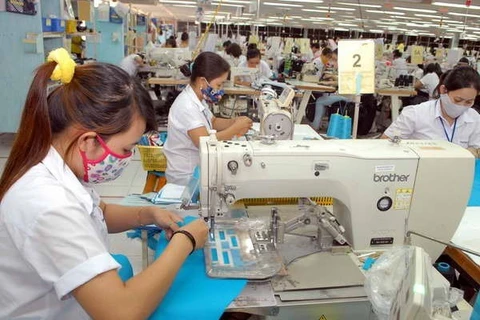Tran Hoang Ngan, a member of the National Assembly's (NA) Economic Committee, shares his views on the country's economic openness with the VnEconomy newspaper.
* In the last two years, there has been talk in the NA about the need to reduce economic openness. What's your view on this matter?
The review report of the country's five-year socio-economic development for the period of 2011-2015 with direction and objectives for the period of 2016-2020 put more emphasis in the development of the domestic market, not just solely focusing in boosting exports.
The report highlighted the need to expand the domestic market, gain access and diversify foreign markets to avoid over-reliance on one particular market. It also stressed the importance of maintaining a healthy import-export balance and building strong Vietnamese brands.
As we can see, there has been a shift in focus from an export-oriented view to a more balanced view that put more emphasis on the domestic market. This is a positive movement in the development of Vietnam's domestic market. In addition, countries with more economic openness often experience frequent volatile macro economic movements.
At the present, there was a large gap between Vietnam's exports, which totaled 298 billion USD, and our GDP of 186 billion USD. It is high time we focus in developing the domestic market, which has much potential with a population of more than 90 million.
* Does that contradict the country's effort to integrate in the global economy?
Global integration still remained an important task. However, the more open the economy is, the more vulnerable it is. Vietnam is ranked as one of the most open economies in the world and second in the Asia-Pacific region with our foreign trade to GDP ratio at 160 percent at present compared to that of five years ago at 100 percent.
Countries with more open economy such as Malaysia and Thailand have been trying to reduce their openness in recent years. A more open economy may also benefit more from positive global economic movement but as it is now the risk outweighs the benefit as we are not yet prepared for full-on integration with the global economy.
Vietnam must aim to reduce the openness of our economy to ensure the sustainable development of the domestic market and avoid over-reliance on foreign markets. It would also help our economy to become less susceptible to damage caused by hard-to-predict economic and political instabilities globally.
* What policies must we focus on to develop Vietnam's domestic market and support Vietnamese businesses?
First, we must focus on improving Vietnamese business capacity, especially our small-and-medium-sized enterprises (SMEs) and the private sector to gain dominance in our 90-million-strong domestic market.
From observation in recent years, our products have been losing out on our home ground. We have failed to create even the most basic products that are capable of competing against foreign products.
The more negligent we are to promote made-in-Vietnam products in our very own domestic market, the more we will lose in the game of global economic integration.
* What's your opinion on the Government's effort to support Vietnamese businesses?
In 2015, the Government has placed more importance on supporting the recovery and development of Vietnamese businesses and shown commendable resolution in pushing for more administrative reforms.
However, along with administrative reforms "attitude reforms" are also important. Simpler administrative procedures won't help much if public officials refuse to cooperate with businesses. This is the underlying reason why businesses are still complaining even after numerous administrative reforms by the Government.
Nothing short of a fundamental change in public officials' attitude and work ethic and meaningful and practical support by local authorities to businesses will produce the much needed breakthrough in our economic development effort.-VNA

Economic integration discussed in Nam Dinh
A seminar was held in northern Nam Dinh province on September 15 to inform state agencies and local business about opportunities and challenges brought by free trade agreements.
























